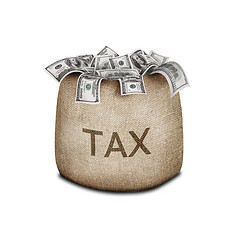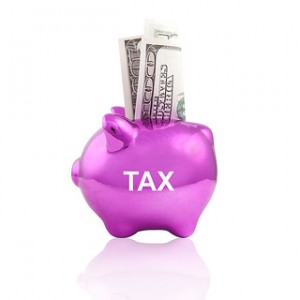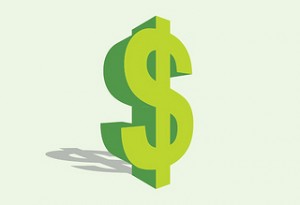Most of us sit down sometime around the new year, organize our finances, and create a budget for the upcoming year. We plan out our expenses and how much we want to save. Then, many of us either put the budget aside and never look at it again, or we follow along, exactly as planned. No matter which camp you fall into, I am here to tell you that it is important for you to take a mid-year review of your finances. You don’t need to take a magnifying glass to each and every category, but rather take an hour or so to look things over. Here are some of the things you should be focusing on.
Mid-Year Financial Review Checklist
- Expenses
It’s always important to keep an eye on your expenses. Now is a great time to look back over at what you had planned for the year and what has actually occurred. Are there some areas where you are overspending that you can cut back? Maybe there are some areas where you budgeted more than you actually needed.In both cases, it is important to know these things. If you aren’t spending as much as you thought, then you can adjust the amount you are saving or investing each month. After all, there is no point in leaving the money in a checking account. That is just tempting you to spend it.
If you are spending more than you planned, it’s time to look at why and make the necessary adjustments. This could mean allocating more to the category in your budget or maybe simply cutting back.
One additional step to cut back on expenses is to look at your bills – cable, internet, insurance, cell phone, etc. and see if there is a way to lower them. You don’t have to spend an entire weekend on this, just make a call to your service provider and see if there is any way they can lower your monthly bill. You’d be surprised to find it’s that easy to save $5 or $10 a month.
- Income
We all love to have income. This too is an important area to look over. Are you earning more than you thought? Maybe you are earning less due to a layoff or career change. On the surface it might not seem like a huge deal if you are earning slightly less or slightly more than you planned, but it can have big consequences.If you are earning less, maybe you now qualify to save for retirement in a Roth IRA. If you are earning more, maybe you can bump up how much you are putting away in your 401k plan or are saving in general. Or maybe you can put more towards any debt you are still paying off. You might see some additional money if you have crossed the Social Security wage base.
In the case where you are making significantly less than you planned, maybe it is time to look into getting another job or even turning some hobbies into income streams. If you do, be sure to review how to calculate self employment taxes.
- Investments
Mid-year is a great time to review your portfolio as well. Look back at your investment plan to see what your intended allocation should be and where you stand. If you haven’t rebalanced lately, chances are your holdings are out of alignment. I typically rebalance when my holding vary from my plan by 5% or more. Take the 15 minutes to see if you are in line with your plan.Again, it might not seem like a big deal, but if you are too heavy in stocks, you are taking on more risk than you are comfortable with. If you have too much money in bonds, you risk not earning the high return you need so that you have enough money for retirement.
- Taxes
Dreaded taxes. No one likes to pay them. But again, it is important you look over things in this area as well. Depending on your income, you might be withholding too much or not enough. While it isn’t the end of the world if you are withholding too much, withholding too little could mean a large tax bill in the new year. I don’t know about you, but having to pay into the system by writing a check in April always hurts. Make it a point to review your taxes so you don’t have any unwanted surprises.One other thing with taxes to consider is any life changing event. Have you gotten married or will be getting married later this year? Have you had a child or will be having a child? These events will impact your taxes so it is important to take the steps now while you still have time.
My wife and I got married last November. In the summer we met with our accountant and found out that we were going to owe a lot in taxes last year because we would be filing a joint return. We made it a point to start taking every tax deduction we could – maxing out 401k plans, maxing out health savings accounts, and adjusting our withholdings. While we still ended up having to pay in April, it was a lot less than we would have if we weren’t proactive about it.
With that said, taxes don’t stop there. You can work on getting some of your tax documents in order so that in the new year, it is one less thing you need to do. Create a folder and place your property and school tax stubs in the folder so you have them. If you have donated anything so far this year, be sure to place the receipts in the folder or at least write down what you’ve donated on a piece of paper so that you don’t forget about it and pay more taxes than you should. Also, keep any documentation needed for the new health insurance premium tax credit.
Final Thoughts
Creating a budget at the start of the year is a smart move to make if you plan on taking control of your finances. But it is equally important to review and adjust your budget as the months go by. We all know that life happens. As a result, we spend more in certain areas and less in others. By constantly reviewing your budget, you are able to see where you are overspending or under spending and make the needed adjustments. This could mean allocating more to certain areas or boosting your savings. Either way, an up to date budget ensures that you are doing everything you can to be financially successful.
More Mid Year Tasks from Years Past
- 10 Important Tasks for Your Mid Year Checkup
- 12 Tasks for Your Mid Year Financial Checkup
- 4 Quick Mid-Year Financial Checkups
- 4 Tasks for Your Fall Tax Check Up










